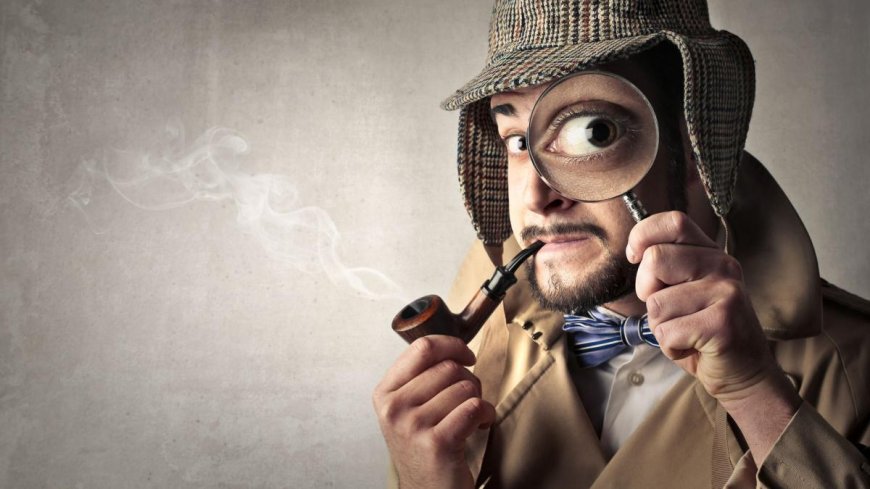The Rise of Amateur Detectives: How Citizen Sleuths Are Shaping Media Trust
Discover how amateur detectives are reshaping media trust by verifying news, exposing misinformation, and holding media accountable. Are they helping or hurting journalism?

In an era where misinformation spreads like wildfire, the role of amateur detectives in verifying media reports has never been more crucial. These citizen sleuths—armed with digital tools, critical thinking, and a passion for uncovering the truth—are challenging traditional journalism and holding media outlets accountable. But are they helping restore public trust in the media, or are they adding to the confusion?
This article explores the impact of amateur detectives on media trust, the tools they use, and the ethical concerns surrounding their investigations.
The Decline of Media Trust: A Growing Crisis
Public trust in the media has been on a steady decline. According to recent surveys, many people believe that mainstream news organizations are biased or influenced by political and corporate interests. The rise of fake news, clickbait headlines, and agenda-driven reporting has left audiences questioning the reliability of the information they consume.
As skepticism grows, more individuals are taking media verification into their own hands, acting as independent fact-checkers and investigators. This shift has given rise to a new wave of amateur detectives who use online resources to fact-check claims, expose misinformation, and analyze media narratives.
How Amateur Detectives Investigate Media Claims
Citizen sleuths rely on various digital tools and investigative methods to verify information. Here are some of their key strategies:
1. Reverse Image Search
Platforms like Google Reverse Image Search and TinEye help users check if an image has been manipulated or taken out of context. Many viral hoaxes have been debunked by simply tracing an image’s original source.
2. Social Media Forensics
Amateur detectives analyze social media posts to identify inconsistencies in viral news stories. They cross-check timestamps, geolocation data, and eyewitness reports to verify or debunk trending claims.
3. Open-Source Intelligence (OSINT)
OSINT tools like Wayback Machine (to view deleted web pages) and InVID (to verify video authenticity) enable citizen investigators to track changes in online content and detect manipulated media.
4. Crowdsourced Fact-Checking
Platforms like Reddit’s r/AskHistorians, r/AskScience, and r/UnresolvedMysteries allow communities to collectively analyze news claims, providing valuable insights from different perspectives.
Notable Cases Where Amateur Detectives Made a Difference
Several high-profile cases highlight the power of citizen investigators in shaping public trust in the media:
1. The Boston Marathon Bombing (2013)
Reddit users attempted to identify the suspects before official confirmation, but their speculation led to false accusations against innocent individuals. This case demonstrated both the power and dangers of amateur sleuthing.
2. The Capitol Riot Investigations (2021)
Online communities played a crucial role in identifying rioters by analyzing footage, cross-referencing social media profiles, and reporting findings to authorities.
3. The "Ghost Plane" MH370 Mystery
Amateur satellite analysts scoured satellite imagery to find clues about the missing Malaysian Airlines Flight 370, demonstrating how civilian investigators could contribute to large-scale searches.
The Double-Edged Sword: Risks & Ethical Concerns
While amateur detectives can enhance media accountability, their work is not without risks:
✅ Pros:
✔️ Exposes misinformation and media bias
✔️ Encourages public engagement with news
✔️ Provides alternative perspectives on major events
❌ Cons:
❌ Risk of spreading false accusations
❌ Lack of professional oversight
❌ Privacy concerns and potential harassment of individuals
The Boston Marathon case is a prime example of how online speculation can wrongly implicate innocent people. Without proper vetting, amateur sleuthing can turn into digital vigilantism, causing real harm.
The Future of Media Verification
As misinformation continues to be a global challenge, the role of amateur detectives will likely grow. However, for their efforts to be truly beneficial, collaboration with professional journalists, fact-checkers, and ethical guidelines will be necessary.
✅ Possible Solutions:
???? Media literacy programs to teach critical analysis skills
???? Fact-checking collaborations between citizen sleuths and news organizations
???? Ethical guidelines for amateur investigations
With the right balance of skepticism, ethics, and digital tools, amateur detectives can play a crucial role in rebuilding media trust while avoiding the pitfalls of misinformation.
Conclusion
The rise of amateur detectives in the digital age is a fascinating development that reflects the public’s growing skepticism of mainstream media. While these citizen investigators have proven their ability to fact-check and challenge misinformation, their influence is a double-edged sword. When used responsibly, amateur detectives can strengthen media trust, but without caution, they risk contributing to the very problem they seek to solve.
As the battle for truth continues, one thing is clear—media trust is no longer in the hands of journalists alone. It is now a shared responsibility, where both professionals and amateurs must work together to ensure accuracy, accountability, and transparency in the information we consume.
What's Your Reaction?
 Like
0
Like
0
 Dislike
0
Dislike
0
 Love
0
Love
0
 Funny
0
Funny
0
 Angry
0
Angry
0
 Sad
0
Sad
0
 Wow
0
Wow
0



















































